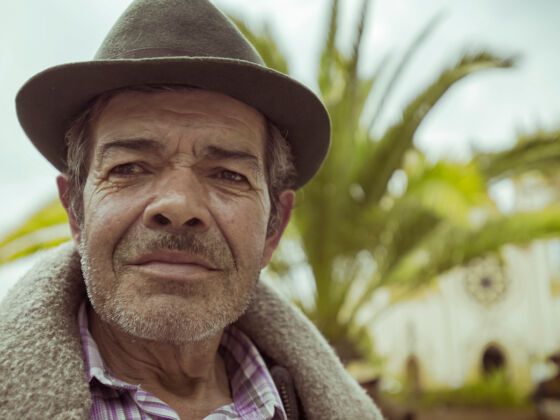On October 2, 2016, Colombia held a vote to determine whether or not President Juan Manuel Santos’ peace agreement with Marxist rebel group, FARC, would become official. Santos was awarded the Nobel Peace Prize this year, in part due to this peace treaty, which was the result of four years of negotiations in Havana, Cuba. Although most polls predicted that the people would vote in favor of the agreement, the results were divided and ended up being really close — 50.2 percent to 49.9 percent. Therefore, the treaty was not validated.

Colombia Voted Against Its President's Peace Treaty. Why?
So after four years of official negotiations and nearly 60 years of violence, why did Colombia vote against this peace treaty?
Depending on who you ask, there are several reasons that the peace deal was voted down. In general, Colombians want peace, but not enough voters were convinced that this agreement was the correct path to that peace. The main objection was that the treaty was too lenient on FARC, it wasn’t going to deliver enough justice.
The deal would have required FARC to be disarmed by the United Nations, and it would allow for FARC members to avoid jail time if they confess to their crimes. Instead of serving time, the confessors would be required to perform “acts of reparation” — like clearing land mines and helping victims. In order to reintegrate themselves into Colombian society, these members would need to receive financial assistance from the Colombian government.
Most of the public who objected the treaty, still wanted peace, they just didn’t want FARC to get off so easily. Since 1964, FARC has fought a rebellion against the Colombian government. They’ve attacked police stations, hijacked airplanes, assassinated public figures, and benefitted from the drug trade. Today, FARC is well known for using kidnapping and ransom to attract attention and drum up funding.
Many of the Colombian voters, and their children, have been victims of FARC violence. Loved ones have been disfigured by land mines, kidnapped and held for ransom, children have been recruited to be soldiers, and sexual violence has been common.
Not only would FARC have avoided punishment, they would have been awarded representation in the current Colombian government.
Under the treaty, FARC would become a legally-recognized political party within Colombia, guarenteeing FARC members 10 seats in congress for the next two elections. If this had become the case, many Colombians feared a radical movement like those in Venezuela and Cuba.
But the Colombian government had also agreed to help improve the country’s rural areas with the treaty, placing a special interest on helping out farmers — which was also one of FARC’s main goals.
More than 63 percent of Colombians didn’t vote, partly because they hadn’t been educated about exactly what they were voting on.
Although nearly 13 million people voted, more than 63 percent of Colombia didn’t — partly due to a failure on the government’s part. There’s been a lot of confusion reported after the vote, over whether or not citizens had been coerced into voting a certain way, or whether the voter’s education or direct experiences with FARC played a major role in their decision. Voters have reported being confused over whether a ‘no’ vote was against the treay, or against peace itself.
What’s Next for Peace in Colombia?
After the Colombian population has voted against, the peace agreement can’t be used as is, and President Santos doesn’t seem to have a Plan B — although he has said that he will send representatives back to Cuba to meet with FARC learders and decide together on how to proceed. The good news is, after 30 years and multiple negotiations, neither school of thought is willing to give up on the idea of peace.